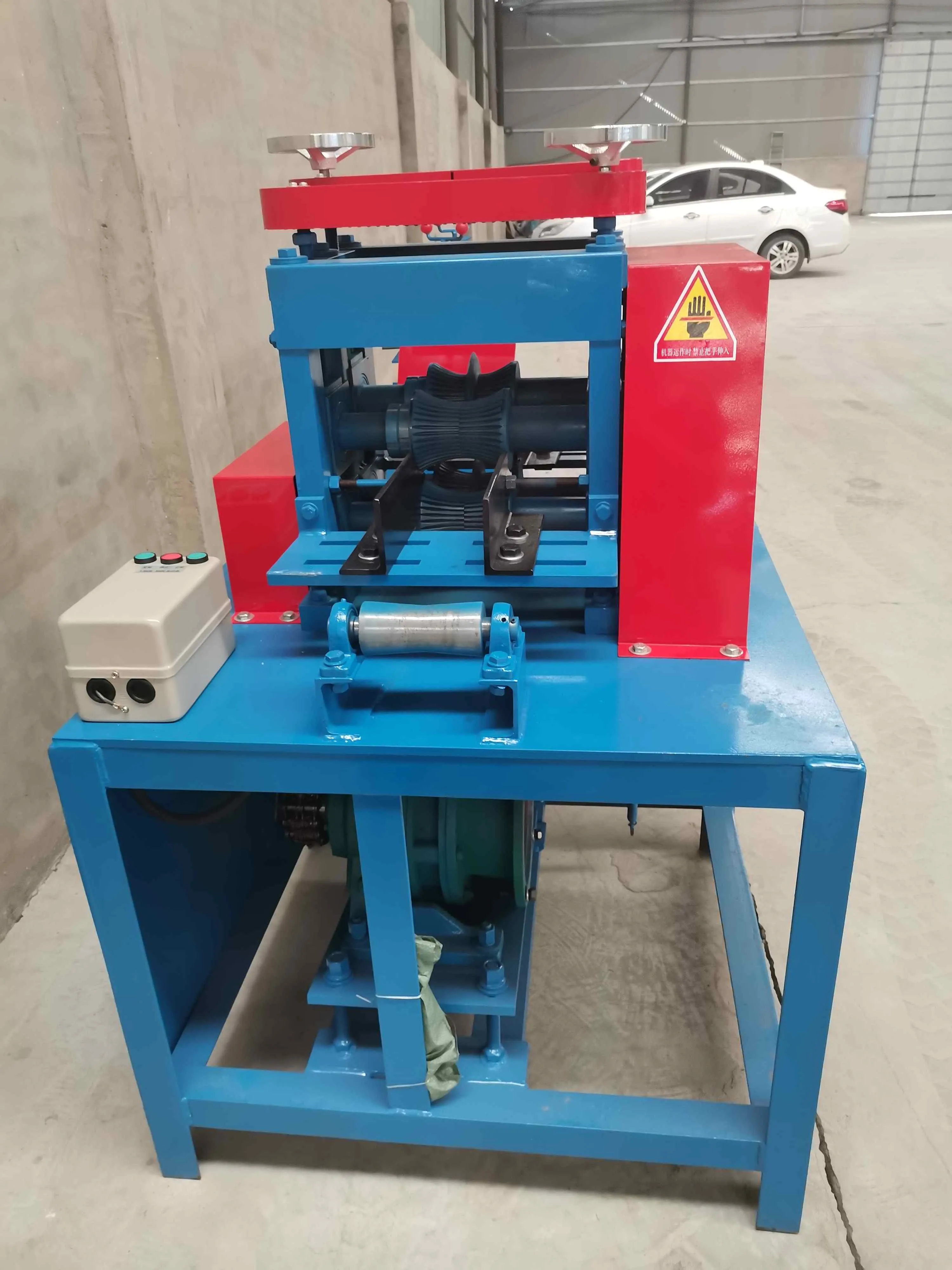

stu . 14, 2024 17:43 Back to list
The Importance of Scrap Processing Plants in Modern Industry
In today's rapidly evolving industrial landscape, the need for sustainable practices has never been more critical. One area that has gained significant attention is the processing of scrap materials. Scrap processing plants play a pivotal role in recycling efforts, converting waste into valuable resources, and supporting a circular economy.
What is a Scrap Processing Plant?
A scrap processing plant is a facility dedicated to the collection, sorting, and processing of scrap metal and other recyclable materials. These plants are equipped with advanced technology and machinery to efficiently handle large volumes of scrap goods, ranging from used vehicles and industrial metal waste to household appliances. The primary goal of these facilities is to retrieve valuable materials that can be reused in manufacturing processes, thereby reducing the demand for virgin resources and minimizing environmental impact.
The Environmental Benefits
The environmental benefits of scrap processing plants are substantial. By recycling metal and other materials, these facilities significantly reduce the amount of waste sent to landfills. According to the Environmental Protection Agency (EPA), recycling and composting prevented the release of approximately 186 million metric tons of carbon dioxide equivalent into the air in a recent year. This is comparable to the annual emissions from over 39 million vehicles. In addition, recycling metal saves energy; for instance, producing aluminum from scrap requires 95% less energy than producing it from raw bauxite.
Economic Contributions
Scrap processing plants also have a considerable economic impact. The recycling industry generates jobs and contributes to local economies. In the United States alone, the industry employs over a million workers and generates billions in revenue annually. By creating a market for recycled materials, these plants promote the growth of related industries, including manufacturing, transportation, and logistics.

Furthermore, companies that utilize recycled materials can save on raw material costs, leading to lower production expenses and potentially higher profit margins. This financial incentive encourages industries to integrate recycled materials into their supply chains, further promoting the importance of scrap processing facilities.
Technological Advancements
Innovations in technology have revolutionized how scrap processing plants operate. Automated sorting systems, advanced shredders, and magnetic separation techniques enhance efficiency and accuracy in material recovery. As a result, these facilities can process a diverse range of materials more effectively, ensuring higher purity levels and better marketability of recycled products.
Moreover, data analytics and tracking systems enable scrap processing plants to monitor their operations closely, optimizing workflows and identifying areas for improvement. These technologies ensure that plants remain competitive in the fast-paced market of recyclable materials.
Challenges Ahead
Despite their benefits, scrap processing plants face several challenges. Fluctuations in market demand for recyclable materials can impact their profitability. Additionally, maintaining compliance with environmental regulations requires continuous investment in technology and training. There is also a growing need for public awareness and education about the importance of recycling, as consumer participation is vital for the success of these facilities.
Conclusion
As we move towards a more sustainable future, the role of scrap processing plants will become increasingly important. They not only help divert waste from landfills but also contribute to economic growth and environmental preservation. By investing in technology and fostering public awareness, we can enhance the efficiency and effectiveness of these facilities. In doing so, we take significant steps towards achieving a circular economy, where resources are reused, recycled, and reintroduced into the production cycle, ultimately benefiting society as a whole. The journey towards sustainability is a collective effort, and scrap processing plants are at the forefront of this essential movement.
Latest news
Troubleshooting Common Eddy Separator Problems
NewsJul.04,2025
The Role of Metal Recycling Plants in Circular Economy
NewsJul.04,2025
The Impact of Recycling Line Pickers on Waste Management Costs
NewsJul.04,2025
Safety Features Every Metal Shredder Should Have
NewsJul.04,2025
How Industrial Shredders Improve Waste Management Systems
NewsJul.04,2025
How Cable Granulators Contribute to Sustainable Recycling
NewsJul.04,2025